Supposedly we know more about the universe than we do the oceans. Maybe that’s why the underwater world holds so much appeal to so many people.
There are so many ways to enjoy the seas. Surfing its waves, and sailing its winds. Swimming in its soothing waters, and jumping from high cliffs into its (sometimes) forgiving surface.
One of the most popular, and certainly a favourite of ours, is to explore it from below in the sport of diving.
We were first introduced to this addictive activity in Utila, Honduras back in 2011 and became instantly hooked. Since then we have been diving in 6 countries and it has consumed a fair chunk of our hard-earned savings. And with no regrets!
For years Lesh tried a host of hobbies before scuba diving grabbed her and became a passion.
For her, the sensation of weightlessness is the closest thing to flying she has ever experienced. For myself, it is the only thing I participate in where I enjoy slowing down rather than pushing myself to the edge.
It is quite spectacular being 40m below the surface and seeing huge schools of fish and an abundance of marine life which you have never seen before.
Another way to see these things is to freedive, which is the art of diving to depths on a single breath, which we completed a course on in Indonesia.
Although we enjoyed freediving, we still much prefer scuba and the extended time it allows you to visually inspect every crevice and crack you can find.
READ MORE: Check out our buyers guide for the best dive watches here: https://www.nomadasaurus.com/best-dive-watches/
There are so many different types of diving, from standard recreational right through to technical diving. With certain training you can explore ship wrecks and caves, take stunning underwater photographs and video, learn to identify the many creatures you discover, and even go as deep as 75 metres and beyond.
One of the other huge benefits of diving, for those who become addicted, is the ability to become a “dive professional”. This can be in the form of a dive master, who in most parts of the world acts as a dive guide, an instructor who teaches the skills needed to dive safely and even search and recovery specialists. Surprisingly, it doesn’t take a lot to become one of these dive professionals, and with a bit of cash and some spare time, you can quickly complete all the necessary certifications to start getting paid to dive, whilst living in a tropical paradise if you so choose. Epic!
When we arrived in Asia, we had put the island of Koh Tao high on our priority list. It is a small island in the Gulf of Thailand, close to the famous meccas of Koh Samui and Koh Phangan.
Koh Tao (Turtle Island in Thai) has become one of the best (and cheapest) destinations in the world to become a diver and has amazing course structures to turn your hobby into a career.
The vibe is quite similar to that of Utila, where the daytime hours are usually consumed by breathing underwater, and the night entails drinking copious amounts of alcohol with new friends from far across the globe. It is an easy place to get “stuck”, and why wouldn’t you want to?
Once we arrived in Koh Tao we signed up for a scuba rescue divers course, and the enriched air (nitrox) and wreck specialties.
We completed our certifications with Crystal Dive Resort and the training provided was top quality.
The rescue course is 3 days of intense training with stressful scenarios of what to do in case of an emergency both under the water and on the surface.
While it was a lot to absorb, it was by far the most rewarding course we have done in diving and our confidence levels have increased exponentially.
The biggest advice we can give to anyone who is considering getting into this awe-inspiring sport is to choose the school you use wisely.
Especially in places like Utila and Koh Tao, the schools have become diver-producing factories, pumping out as many newly certified bubble makers as they can, as fast as they can.
While it is definitely cheaper than doing it almost anywhere else in the world, and as far as high-risk sports go, it is fairly safe, don’t forget that this is still indeed dangerous.
Take the time to meet your instructor, ask them questions like how long they have been diving for, where have they been diving, what is their views on ecological sustainability with diving, etc.
As you get many people doing their “zero to hero” courses, where they arrive as a complete beginner and 6 months later are teaching, you can find people who have little experience and bad habits or ideals and this can transfer to you.
And with most schools vying for your business before you even arrive at the ferry terminal with offers of free accommodation and cheap drinks, it’s easy to be persuaded to learn to dive with a sub-par organisation.
Do your research and think carefully.
When you do decide to get into scuba diving, beware of its ever-holding grasp it will take on your life.
You may end up quitting your job, selling all your possessions, saying goodbye to your family and friends and moving to one of these pristine destinations to live a perfect life.
A life that involves spending the majority of your time entrapped in a natural aquarium, marvelling at the wonders of something that takes up around 70% of the Earth’s surface, yet we know so little about.
You will surround yourself with new friends, an amazing community and different mindsets.
All of a sudden you will begin to wonder why you spent so much time on land when there is a whole new world to explore all around you. Take a breath and plunge in!

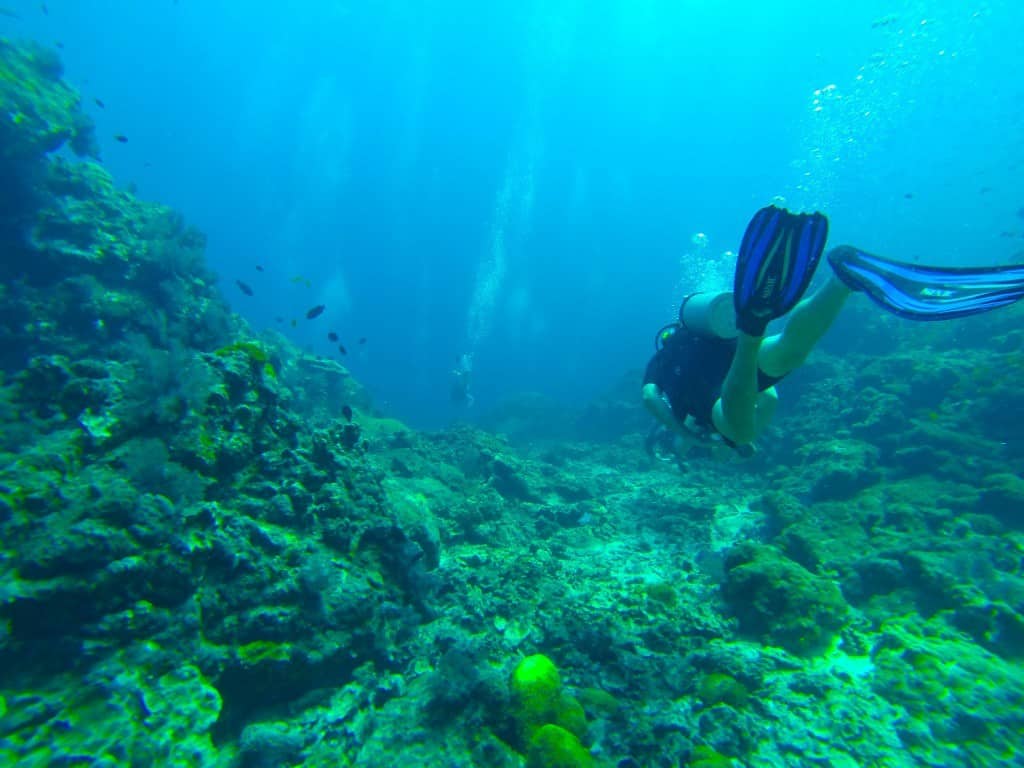
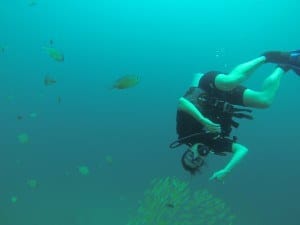
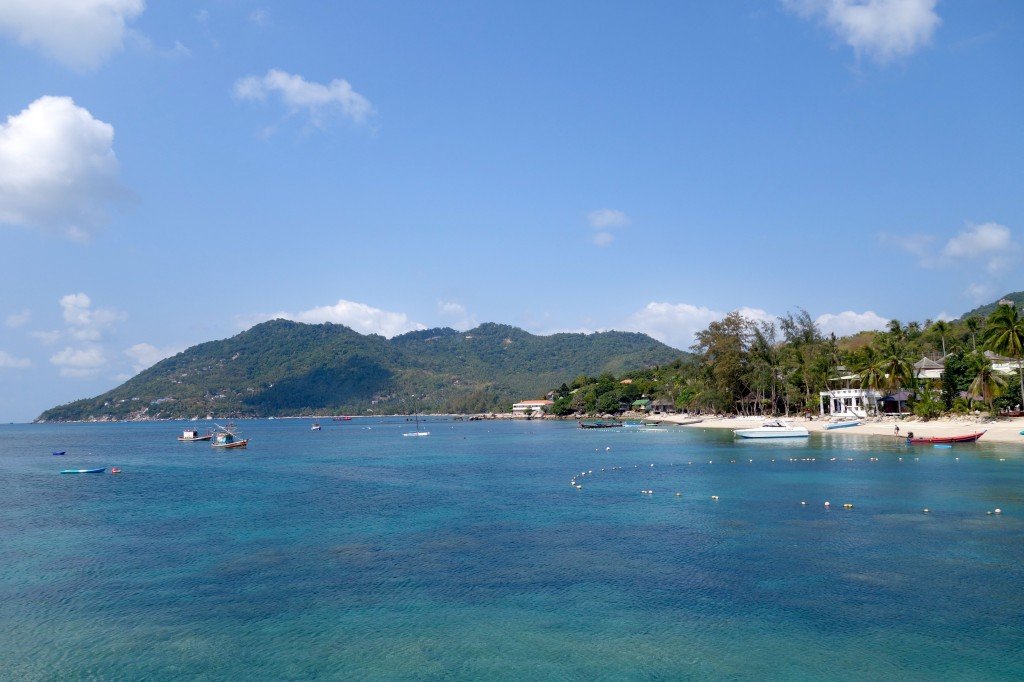
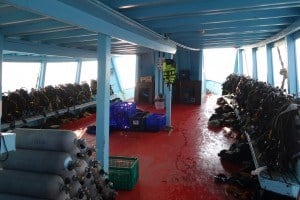
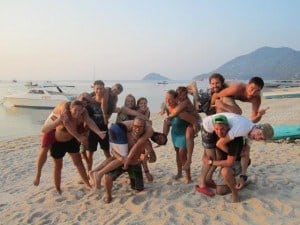
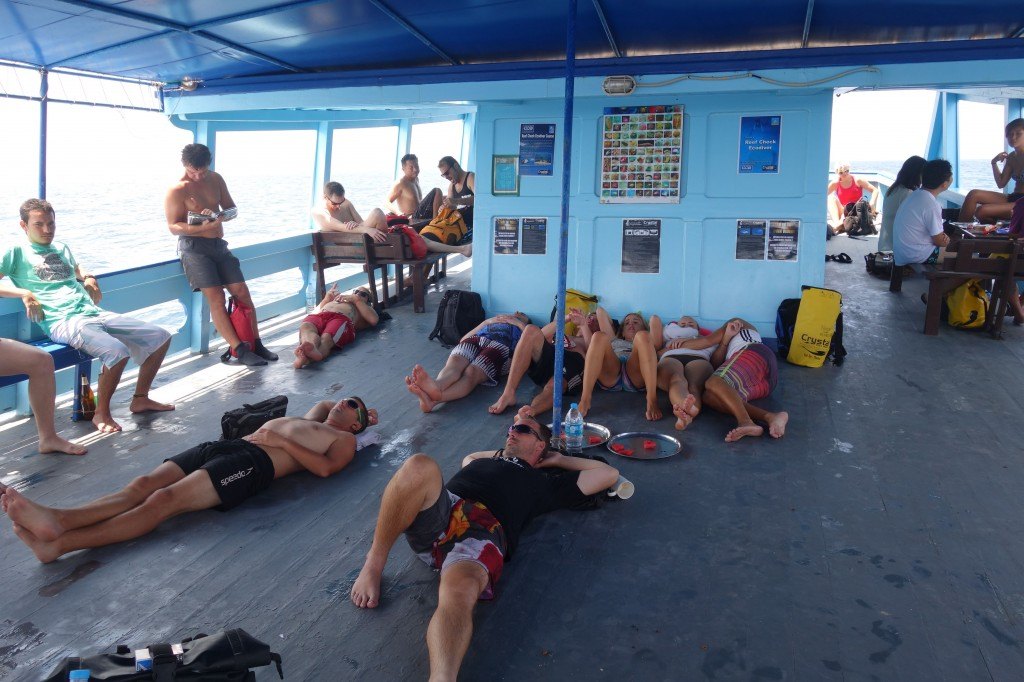
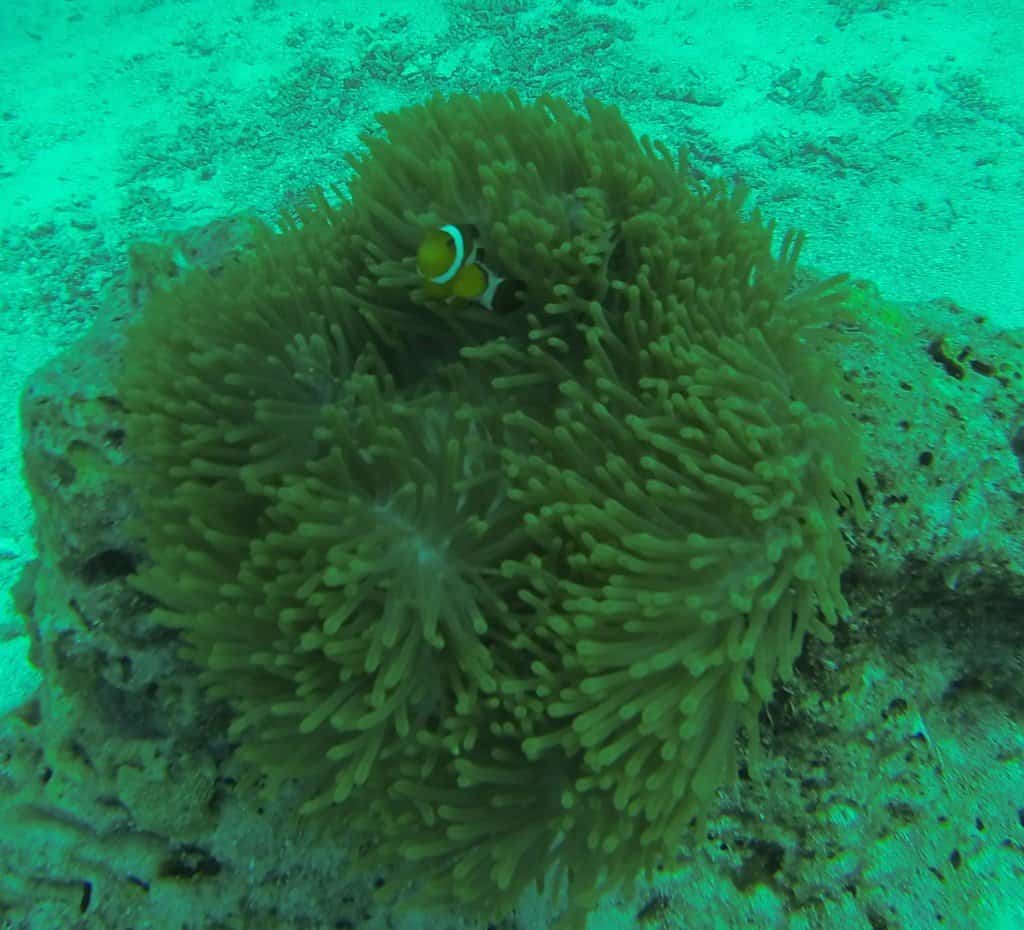
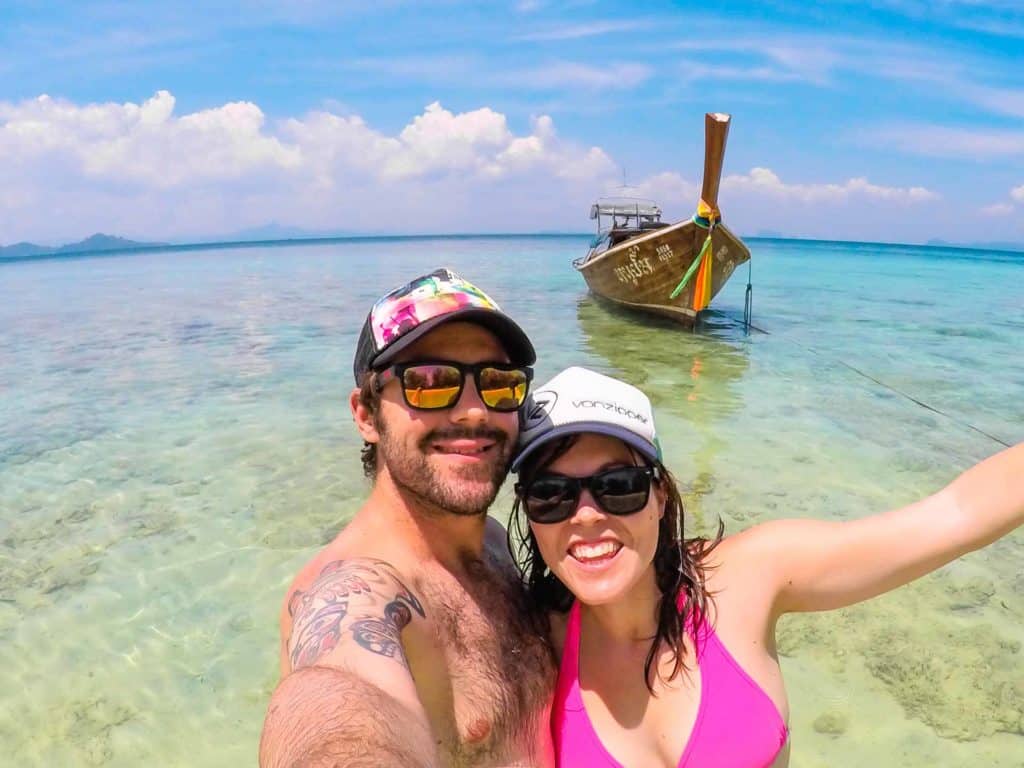
4 thoughts on “Diving To Explore The Mysterious World Underwater”
are you guys diving instructors?
Not yet. But maybe one day 😉
I’m right there with ya! I too got certified at Crystal Dive Resort with Dirk almost 4 years ago. Recently while I was volunteering in Borneo I upped my cert to rescue diver and am now looking into getting my DM. It’s so addicting but in the best way. It’s such an amazing feeling being down there. Almost meditative. I personally feel at home underwater, and once I was on land for a while, I felt like there was a piece of me missing.
If you are ever in the North Sulawesi area, I strongly recommend diving Lembeh Strait with Eco Diver Resort. It’s awesome and full of macro. Also I was volunteering on Pom Pom Island near mainland Borneo and there is really good diving there too.
Cool to hear you got certified at Crystal Dive Resort. Great place! Would love to dive North Sulawesi. We’ll put Lembah Strait on our list. Happy diving Sadie 😀